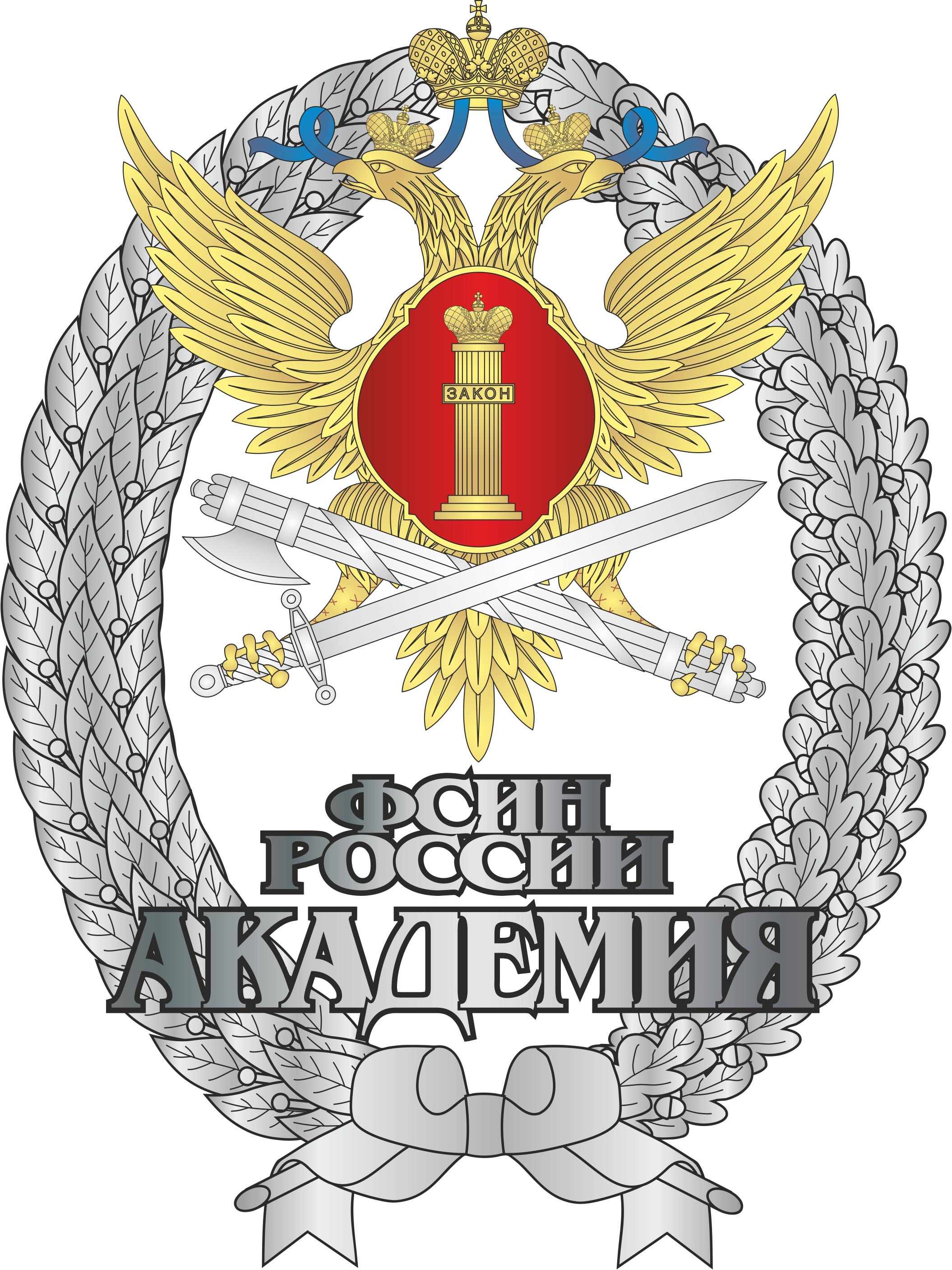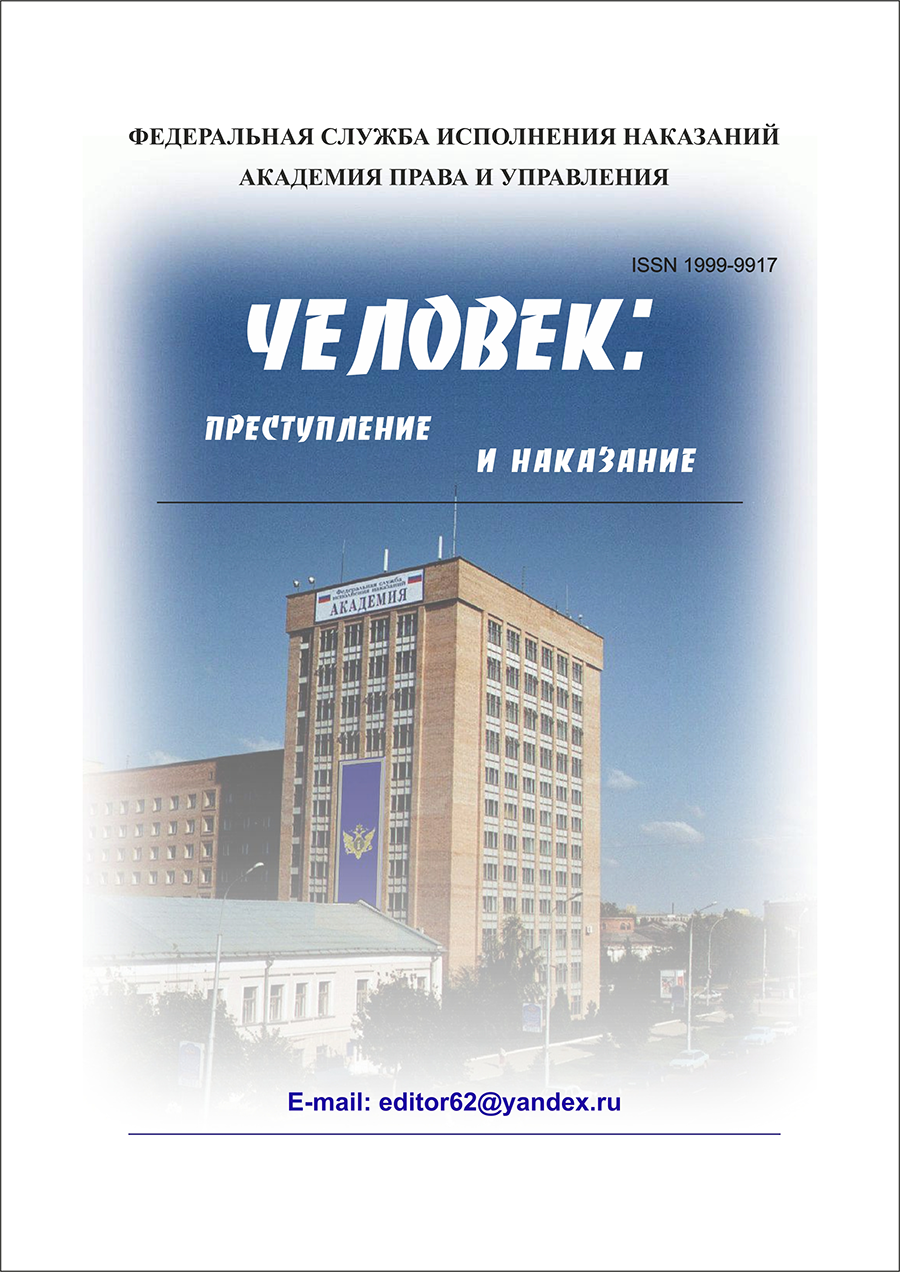Russian Federation
UDC 343.811-055.2
The article discusses the factors that cause significant scientific interest in the peculiarities of educational work with females, in respect of whom a criminal penalty in the form of imprisonment is being executed. It is shown that among convicted women, the widespread manifestation of the criminal subculture is not typical. It is shown that the content of the methods of educational work with this category of convicts is deeper, and their list is more diverse in comparison with the methods of such work with convicted men held in correctional institutions. The contradictory role of the psycho-emotional and socio-legal characteristics of convicted women for the effectiveness of the educational impact on them is indicated. Criticism of the absence in the penitentiary legislation of specially designated norms that would regulate educational work with female convicts is presented. Accordingly, in the order de lege ferenda, additions and amendments to Art. 109, 110 of the Penal Code of the Russian Federation. It is concluded that there is a connection between the ideas of humanism in the domestic penal policy and a more meaningful penal regulation of educational work with convicted women serving imprisonment.
educational activities, gender peculiarities, isolation from society, correctional institution, means of correction
1. Egorov, V. A. & Shagunova, V. M. 2022, ‘Features of educational work with women sentenced to deprivation of liberty at the present stage of reforming the penitentiary system’, Legal reform, iss. 4, pp. 36-39.
2. Egorova, A. A. 2023, ‘Psychological and pedagogical features of educational work with convicted women’, Theory and practice of socio-humanitarian sciences, iss. 1, pp. 70-74.
3. Ezhova, O. N. 2019, ‘Features of the personality of women serving sentences in places of deprivation of liberty’, Bulletin of the Samara Law Institute, iss. 5, pp. 127-134.
4. Zautorova, E. V. & Kevlya, F. I. 2021, ‘Features of the emotional state of female convicts in places of deprivation of liberty’, Psychopedagogy in law enforcement agencies, vol. 26, iss. 2, pp. 186-193.
5. Onishchenko, I. S. 2020, ‘Topical issues of organizing educational work with women sentenced to deprivation of liberty’, in Penitentiary system: pedagogy, psychology and law: materials of the All-Russian Scientific and Practical Conference, pp. 283-287, Tomsk.
6. Polishchuk, V. E. & Ponomarev, S. B. 2019, ‘On the question of the axiology of the prison subculture’, in Penitentiary security: national traditions and foreign experience: materials of the All-Russian scientific and practical conference, in 2 vols, vol. 1, pp. 180-182, Samara Law Institute of the Federal Penitentiary Service of Russia, Samara.
7. Sadovskaya, A. D. 2022, ‘Educational work with convicted women as a direction for the prevention of female crime in a correctional facility’, in A. I. Sogrin (comp.), The penitentiary system and society: an experience of interaction: a collection of materials of the IX International scientific and practical conference, Perm, pp. 147-151.
8. Maloletkina, N. S. 2019, ‘The use of fixed assets for the correction of convicts in the penitentiary system of Russia’, Bulletin of the Samara Law Institute, iss. 5, pp. 60-65.
9. Utkin, V. A. 2020, ‘Penitentiary rights of convicts’, Bulletin of the Kuzbass Institute, iss. 2, pp. 134-142.
10. Shaekhov, R.F. 2022, ‘Organization of educational work with convicted women in places of deprivation of liberty’, VIII Pedagogical readings dedicated to the memory of Professor S. I. Zlobina: collection of materials, in 2 vols, vol. 1, comp. A.I. Sogrin, pp. 156-158, Perm.
11. Tadič, D. 2021, ‘Prison, women and prison rules for women’, European Journal of Criminology, vol. 18, iss. 4, pp. 484-503.









